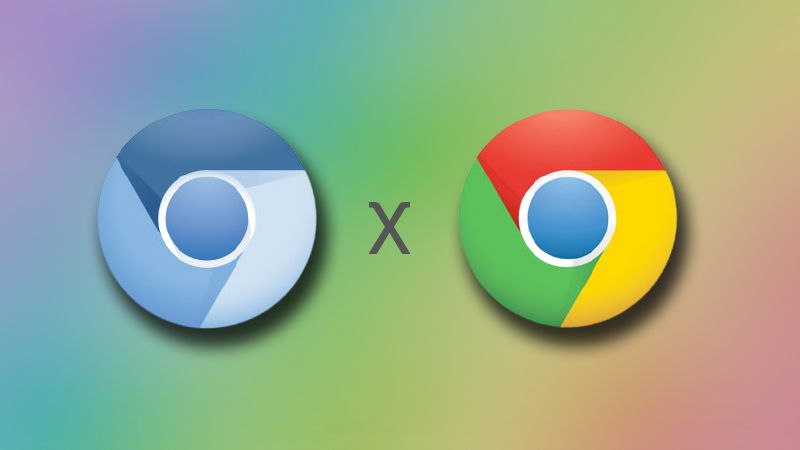

- #CHROMIUM VS CHROME TRACKING INSTALL#
- #CHROMIUM VS CHROME TRACKING LICENSE#
- #CHROMIUM VS CHROME TRACKING FREE#
#CHROMIUM VS CHROME TRACKING INSTALL#
What this means is that if you desired to play MP3 media or use a streaming app such as YouTube using a Chromium browser, you’ll be forced to manually install the required codecs.Īnd if you’re still using Adobe Flash player, you’ll not be able to use it on Chromium unless you manually write the requisite code on the browser.


#CHROMIUM VS CHROME TRACKING LICENSE#
Chrome comes with license support for MP3, AAC, and H.264 codecs, which Chromium doesn’t have.
#CHROMIUM VS CHROME TRACKING FREE#
In addition to the basic free codecs that you get in Chromium, Chrome enables access to a vast variety of media content. The license support offered on Chrome is immense. Unlike Chrome, Chromium provides support for a limited number of basic codecs such as Theora, VP8&9, Opus, and WAV. If you choose to use Chromium, one of the weaknesses you’ll discover with the browser is the acute limitation in the amount of media content that you can play. Fortunately, it’s possible to stay private when using Chrome – if you browse using Incognito Mode, your private information stays private. But when you look at the overall picture and the other advantages that Chrome has over Chromium, you might wonder if there’s a way to make your data private. Since Chromium does not collect and transfer private data like Chrome does, you might be more inclined to use Chromium. There’s so much information that you might desire to keep private but, unfortunately, Google, courtesy of Chrome, already has that information. While such reports could help Google perform needed upgrades, the browser’s ability to collect and transfer historical data about the user doesn’t make many feel protected. The ability to collect so much data is actually a double-edged sword. Chrome sends crash reports and user statistics. Chrome is popular for several outstanding features including its ability to automatically collect and transfer a vast range of data. When browsing the internet, privacy is of utmost importance and you want a browser that doesn’t jeopardize the security of information that you consider private.

So, what are the main differences between the two and why would you choose one over the other? Privacy While Chrome dominates the browser market, Chromium is the base on which most browsers are built today. Google released Chrome as a proprietary browser but at the same time created Chromium as an open-source project that could be used as the foundation for other browsers. Chrome: What’s the Difference?įrom the above table, we can see that Chrome and Chromium were released by Google simultaneously. Chrome: Side-by-Side ComparisonĪdvanced: Includes MP3, AAC, H.264, Adobe FlashĬollects and transfers vast amounts of dataĬhromium vs. Let’s delve into a full-fledged comparison of Chrome and Chromium to help you figure out which web browser is the superior choice for you. For these and other reasons, it makes sense to choose your browser carefully. And if you’re using the internet to work like many of us do, you want a browser that guarantees good speed without taking too much of your gadget’s memory. You certainly care about your privacy and you can only hope that your personal data is not being shared with other people. While you might not have given much thought about the importance of the browser you use, remember that the very act of getting online gives the web browsing company access to a lot of private data. Whether you’re accessing the internet on a desktop, laptop, iPad, or other mobile devices, your browser provides the gateway to the internet. While Chrome is the undisputed top dog of the browsing world, did you know that it has very close similarities to its name-sharing Chromium? Did you also know that there are substantial differences between Chrome and Chromium? As a regular user of the internet, do you care about the web browser you use? If you’re reading this article using Chrome, you’re in a large group of global internet users for whom Chrome is the browser of choice.


 0 kommentar(er)
0 kommentar(er)
